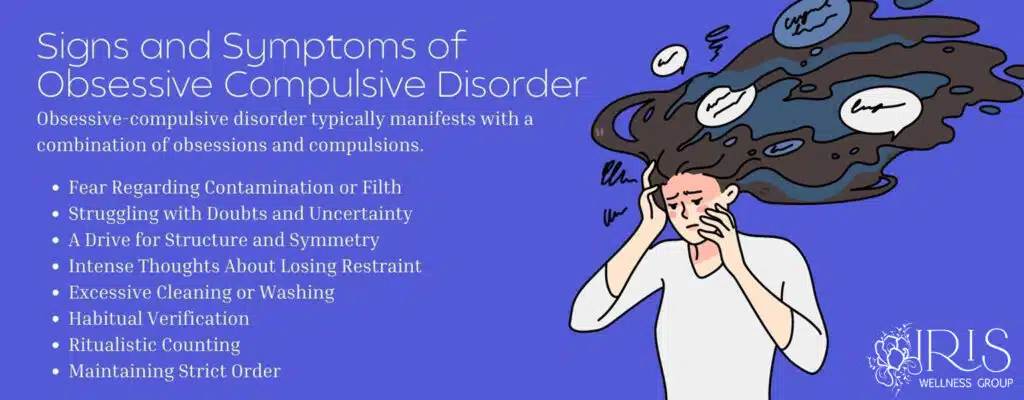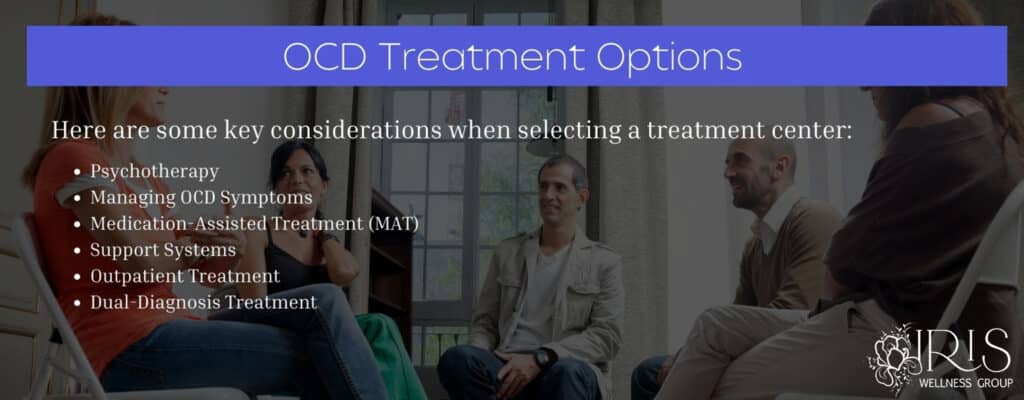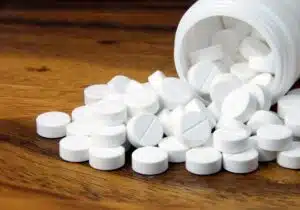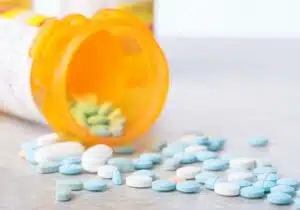Table of Contents
What is Obsessive-compulsive disorder (OCD)?
Obsessive-compulsive disorder (OCD) is characterized by persistent, intrusive thoughts (obsessions) that lead to repetitive actions or rituals (compulsions). These overwhelming thoughts and resulting behaviors can significantly hinder daily life and bring about profound distress.
Attempting to dismiss or resist these obsessions often heightens anxiety and unease. As a coping mechanism, individuals are compelled to act out specific behaviors or rituals, hoping to alleviate their anxiety. However, these compulsions, rather than providing relief, only reinforce the disorder, creating an ongoing loop of obsessions and compulsions.
Themes of OCD vary, with one common one being an intense fear of contamination. For example, a person might be consumed by the thought of germs, leading them to wash their hands obsessively, to the point of causing physical harm like soreness or chapping.
Published data from the Psychiatric Clinics of North America highlights that at some point in their lives, approximately 2.3% of the population will be affected by OCD. In any given year, about 1.2% may exhibit signs of the disorder. Specifically, in the United States, it’s estimated that OCD impacts nearly 2.2 million adults, which is about 1% of the population.
A noteworthy connection exists between mental health disorders, including OCD, and the propensity towards addiction. Individuals with OCD might gravitate towards substances or certain behaviors as a temporary escape from the torment of their symptoms. Call Iris Wellness Group today to start your OCD Treatment

Signs and Symptoms of Obsessive-Compulsive Disorder (OCD)
Obsessive-compulsive disorder typically manifests with a combination of obsessions and compulsions. However, some may experience solely obsessional or compulsional symptoms. While one might not always recognize the extent of these obsessions and compulsions, they undeniably consume much of one’s time, disrupting daily activities and affecting social interactions, school, or work life.
Characteristics of Obsessions
At the core of OCD are recurring, intrusive, and undesired thoughts, impulses, or images that bring about anxiety or distress. One might attempt to sidestep these or quell them through certain compulsive actions or rituals. Intrusively, these obsessions often emerge when you’re engrossed in other tasks.
Common themes underlying these obsessions include:
- Fear regarding contamination or filth
- Struggling with doubts and uncertainty
- A drive for structure and symmetry
- Intense thoughts about losing restraint, potentially causing harm to oneself or others
- Undesired and disturbing thoughts, be they aggressive, sexual, or religious in nature
Obsessive behaviors might manifest as:
- Concern over being polluted by objects handled by others
- Uncertainty about whether you’ve secured the door or switched off appliances
- Anxiety when items aren’t organized or aligned correctly
- Visualizing oneself causing harm, like plowing a car into a group
- Fear of blurting out inappropriate remarks or acting indecently in public settings
- Distressing sexual thoughts
- Evading triggers for obsessions, like refraining from handshakes
Addiction and Obsession
Addiction and obsession share intricate connections. Obsessions, characterized by persistent intrusive thoughts, often lead to feelings of anxiety and depression. This emotional turmoil can make individuals more prone to addiction as they seek solace. Many turn to drugs, viewing them as a temporary escape from their overwhelming emotions. These substances might offer momentary relief and a fleeting sense of joy, further blurring the lines between addiction and obsession.
Characteristics of Compulsions
Compulsions in the context of OCD are habitual actions or thoughts that one feels compelled to enact. These are typically designed to alleviate the anxiety stemming from obsessions or to ward off perceived threats. However, indulging in these compulsions doesn’t bring satisfaction and at best provides ephemeral relief from distress.
Often, individuals create specific routines or guidelines to manage their anxiety during obsessive spells. Notably, these compulsions can be disproportionate and might not logically correlate with the issue they aim to address.
Compulsions often fall under categories like:
- Excessive cleaning or washing
- Habitual verification
- Ritualistic counting
- Maintaining strict order
- Sticking to rigorous routines
- Seeking frequent validation
Compulsive behaviors can include:
- Over washing hands to the point of chafing
- Continuously checking if doors are locked
- Regularly verifying if appliances are deactivated
- Engaging in distinct counting sequences
- Quietly reciting a prayer, term, or sentence
- Organizing items, such as aligning canned produce uniformly
Addiction in Relation to Compulsion
Compulsions, by nature, are repetitive acts undertaken to counteract the distress tied to obsessions. Addictions can surface as a means to quell this associated distress. Therefore, both addiction and compulsion share the common thread of seeking relief from discomfort.
A significant overlap exists between OCD and substance dependency or addiction. As noted by the Journal of Anxiety Disorders, a considerable fraction of those pursuing OCD treatment grapple with substance abuse issues. Individuals who begin showing OCD symptoms during early adulthood are particularly susceptible to later addiction.
Iris Wellness Group offers specialized OCD treatment in Chattanooga, TN and it’s surrounding areas. Take the first step towards reclaiming your peace of mind. Contact us today at 423-564-6114!
Start Your Comprehensive OCD Treatment Today!
What Causes OCD?
The exact origins of obsessive-compulsive disorder remain elusive. However, prevailing theories point to:
- Biological Factors: Alterations in the body’s intrinsic chemistry or brain functions might play a role in developing OCD.
- Genetic Factors: There’s a potential genetic link associated with OCD, though specific genes have not been pinpointed.
- Environmental Learning: One might acquire obsessive fears and compulsive actions by observing family members or through gradual experiences over the years.
What are the Risk Factors of OCD?
Certain conditions or experiences might amplify the likelihood of manifesting OCD:
- Genetic Predisposition: If immediate family members or relatives have been diagnosed with OCD, you might have a heightened risk of contracting the disorder.
- Life Stresses: Undergoing traumatic or intense stressful events can escalate the risk. Such incidents might activate the signature intrusive thoughts, routines, and emotional turmoil found in OCD.
- Co-existing Mental Health Conditions: The presence of other mental health challenges like anxiety disorders, depression, substance misuse, or tic disorders could be intertwined with the development or intensification of OCD.
Why is there a link between OCD and addiction?
The link between Obsessive-Compulsive Disorder (OCD) and addiction is intriguing. Both conditions involve compulsive behaviors, with OCD characterized by persistent intrusive thoughts and repetitive actions, while addiction manifests as an uncontrollable urge to use substances despite adverse consequences. Several factors illuminate their connection:
- Individuals with OCD might use substances to temporarily alleviate the anxiety stemming from their condition.
- Brain irregularities, particularly in areas governing behavior and impulse control, are present in both disorders, possibly reducing an individual’s resistance to compulsions.
- The serotonin system, associated with mood and reward, is believed to be dysregulated in both OCD and addiction. This could lead to substance use as a form of self-medication.
- The cyclical nature of relief and recurrence in both conditions can create a reinforcing loop of escalating substance use and worsening OCD symptoms.
In essence, the connection between OCD and addiction might stem from a combination of neurological, behavioral, and cyclical factors.

OCD Treatment and Addiction Management
Both OCD and addiction are conditions that can be managed effectively. While one might live with elements of OCD for their lifetime, with the right interventions and support, symptoms can notably diminish.
The treatment approach for OCD and addiction includes:
- Psychotherapy: Both OCD and addiction can benefit from therapeutic interventions. During these sessions, a therapist collaborates with the individual to discern the motivations behind their behaviors, tackle ingrained thought patterns, and cultivate new coping mechanisms. Delving into potential underlying causes or contributing factors, such as past trauma, is also an integral part of the process.
- Managing OCD Symptoms: Many individuals with OCD find solace in medications that alleviate their symptoms. It’s worth noting, however, that the efficacy of these medications can differ among individuals.
- Medication-Assisted Treatment (MAT): For those grappling with substance addiction, MAT can be a viable option. This approach aids the body in its adjustment phase. For instance, a medical professional might prescribe methadone for someone battling opioid addiction to mitigate cravings and the severity of withdrawal symptoms.
- Support Systems: Whether it’s for OCD or addiction, support groups offer a lifeline. They provide coping strategies, a sense of community, and comfort from peers who have navigated similar challenges. Additionally, structured programs are available to guide individuals throughout their addiction recovery journey.
It’s paramount to understand the intertwined nature of OCD and addiction, necessitating simultaneous treatment for both, as they can potentially exacerbate each other.
Keep in mind that addiction is a long-term condition. While medication can address the symptoms of OCD, continuously managing addiction is crucial to prevent a relapse.
Both inpatient and outpatient rehab programs offer medically-supported detox, therapeutic counseling for OCD manifestations, and guidance to maintain sobriety.
Lastly, individuals using addictive substances should refrain from abrupt discontinuation or going “cold turkey.” Depending on the specific substance, such actions could pose severe health risks.
OCD Treatment in Chattanooga, TN
The presence of both OCD and addiction creates particular challenges in treatment. With dual diagnosis care, the journey to recovery becomes more feasible and promising. In Chattanooga, TN and surrounding areas, you can find effective treatment for OCD and co-occurring substance use disorders at Iris Wellness Group.
Iris Wellness Group is equipped with dedicated professionals, offering outpatient programs tailored for addiction and an array of mental health challenges. Reach out to us to gain insights into our OCD treatment pathways designed to resonate with your unique needs.









